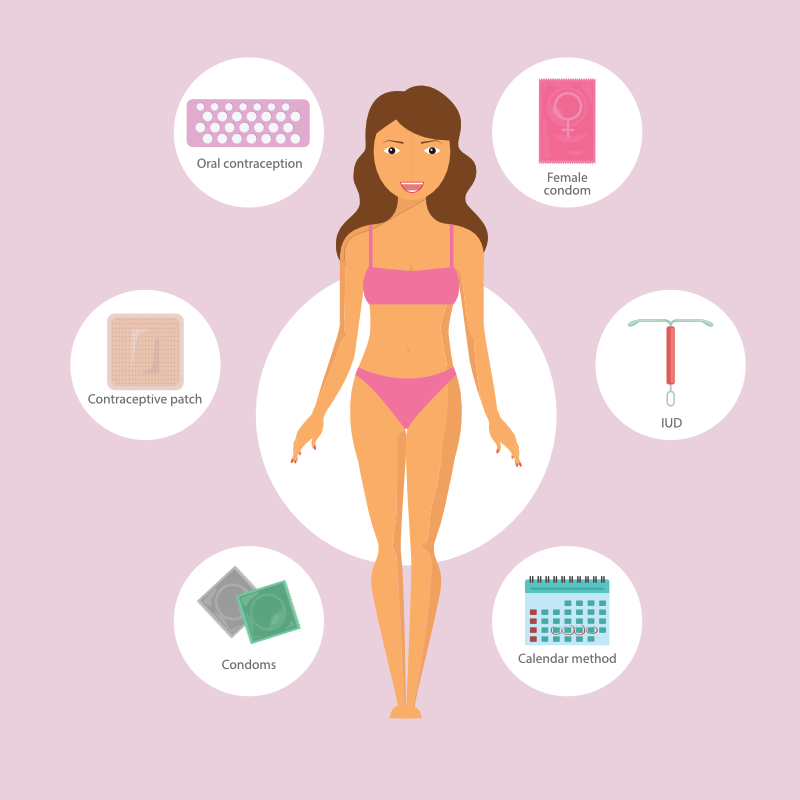
There are many different contraceptive methods available.
Here we discuss the available methods, points to consider when choosing a contraception method, explains how they work, how effective they are and the main advantages and disadvantages.
Contraception should be used by all women who are sexual and do not want to get pregnant up until they reach menopause.


Answer: There are so many methods of contraception to choose from it is worth taking the time to find out more about each one so that you can choose contraception that suits you, (see methods as you continue reading). You can also talk to a healthcare provider to help you choose.
Some of the things you might want to think about are when choosing a contraceptive method:
Other things to consider:


Answer: You can obtain free contraception, including emergency contraception, from:


Answer: The emergency contraceptive pill is a tablet containing the hormone progestogen. It works by delaying the release of an egg. It may also stop a fertilized egg settling (implanting) in the uterus. It must be taken within three days (72 hours) of having unprotected sex. In case of rape or if you have had unprotected sex (sex without using contraception / protection condom) or if think your contraception might have failed (condom burst), you can use Emergency Contraception (EC/E-Pill). If you act quickly, emergency contraception will usually prevent pregnancy.
NOTE:
Emergency contraception does not perform an abortion. It will not disrupt a pregnancy that has already taken place (the implantation has already happened). Emergency contraception should only be used in times of emergency and should not be used as a regular form of contraception.


Answer: A woman can get pregnant anytime during her menstrual cycle. But some days are more likely than others. 85 % of sexually active women who do not use contraception will get pregnant within one year. There are days within the cycle that are referred as fertile days. On these days a woman is most likely to get pregnant if she has unprotected sex. The most fertile days are the seven days in the middle of the menstrual cycle around the ovulation day. The rest of the days are known as safe days. On these days a woman is less likely to get pregnant but this is not 100% the case.
THE MENSTRUAL CYCLE:


Answer: Breastfeeding can be used as a form of preventing pregnancy only if:


Answer: No method of contraception is 100%. If you think you could be pregnant, do a pregnancy test as soon as possible. If you are pregnant you need to think about what you want to do. You can choose to:


Answer: Most methods of contraception do not protect you from sexually transmitted infections. Male and female condoms, when used correctly and consistently, can help protect against sexually transmitted infections. One can also use condoms in addition to another method of contraception. This is called dual protection.


NOTE:
Hormonal methods may have some effect for some women but the side effects are manageable and none of them are life threatening.
